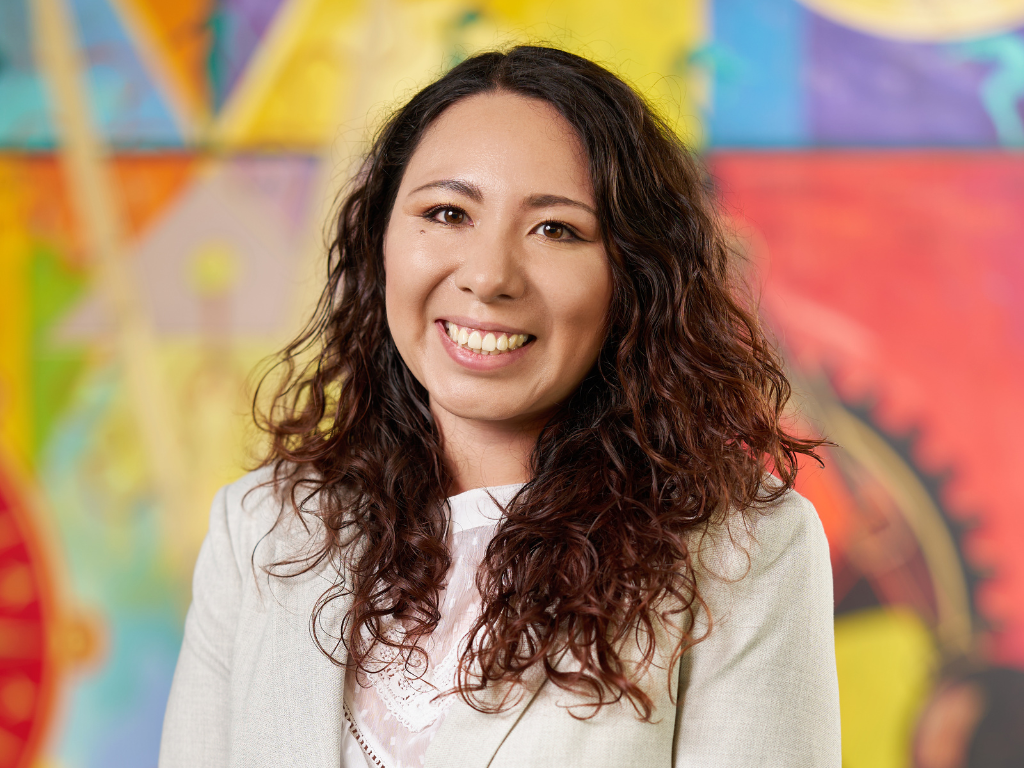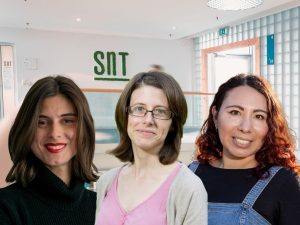Women scientists at Luxembourg’s SnT are reshaping technology research, from cybersecurity to space systems, proving that diversity drives innovation in ICT fields.
Women contribute to the exceptional research done at the University of Luxembourg. Yet, they also remain underrepresented across ICT disciplines. The European Institute for Gender Equality (EIGE) reports that the absence of women in ICT is strongly connected to the perception of these jobs as a playground for men. This perception leads to missed opportunities for talented women in the field.
The International Day of Women and Girls in Science gives us a chance to showcase women who aren’t just participating in tech—they’re leading the way. These are three SnT researchers breaking glass ceilings.
Claudia Negri Ribalta is redefining cybersecurity
Dr Claudia Negri Ribalta received the prestigious Marie Sklodowska-Curie Fellowship for 2024-2027. With this support, she will create a framework to help professionals handle data protection.
Her work brings together different fields because data protection affects many roles. Engineers, lawyers, business leaders, and financial experts all need to follow strict data rules. This matches Negri Ribalta’s own varied background in political science, digital media, and computer science.
“Cybersecurity is such a vast field that it needs to be approached from different perspectives,” she explains. Her career path, initially unaligned with academia, eventually led her to discover a passion for teaching.
Negri Ribalta knows firsthand about being one of few women in research and cybersecurity. She emphasises resilience for women pursuing careers in these fields. ‘Get in touch with other women in research—they’ll give you invaluable advice,’ she advises.
Eva Lagunas is leading the signal processing conversation
In 2025, Dr Eva Lagunas joined the Board of Directors of the European Association for Signal Processing (Eurasip). She follows SnT’s former director Björn Ottersten in this role.
As a leading researcher in SnT’s Signal Processing and Communications Research Group (SIGCOM), Lagunas works on improving wireless networks. “This is a great reward for my career and gives me the opportunity to contribute to the further development of Eurasip,” says Lagunas.
The new board includes two women and four men, showing the ongoing need for better gender balance. “It’s hard to achieve balance when so few women work in tech research,” Lagunas notes.
Eurasip has connected signal processing experts across Europe since 1978. The group runs conferences, gives awards, and publishes research. Lagunas has served as an editor and committee member since 2019. Lagunas has served as Associate Editor of the Eurasip Journal on Advances in Signal Processing (JASP) and as a member of the Technical Area Committees (TAC) on Theoretical and Methodological Trends in Signal Processing since 2019.
This new leadership role gives her a platform to highlight both her work and SnT’s achievements in signal processing research.
Flor de Guadalupe Ortiz Gómez is innovating in space technology
Dr Flor de Guadalupe Ortiz Gómez recently won one of the first Marie Speyer Excellence Grants. These grants support outstanding women scientists at the University of Luxembourg across all fields.
As a researcher in the Signal Processing and Communications Research Group (SIGCOM), her project BrainSat aims to fix problems with current satellite systems, which are slow and waste energy. She’s developing new processors that can handle huge amounts of data quickly and efficiently. This work could improve both satellite communication and Artificial Intelligence applications.
“Getting funding for BrainSat means so much to me,” says Ortiz. “It shows that my hard work matters.” She encourages other women to take chances: “You’ll never succeed if you don’t try.”
Building a better future
Universities play a key role in creating change. By fostering an environment that recognises and supports talented women in research, SnT demonstrates that diversity and inclusion are essential for innovation. Role models like Negri, Lagunas, and de Guadalupe Ortiz Gómez showcase how resilience, expertise, and leadership can break barriers and inspire change.
Their accomplishments not only underscore the value of women’s contributions to ICT but also serve as a call to action for the scientific community to continue working towards greater equity.
About IRiSc
IRiSC is the research group focused on Sociotechnical Cybersecurity. It conducts forward-looking theoretical and experimental research on cybersecurity and online privacy thanks to the interdisciplinary expertise of its members.
About SIGCOM
SigCom is the research group focused on Signal Processing and Communications. It conducts research aimed at designing, emulating, and testing new high-performance systems for the future of mobile and satellite communications.
People of this story
-

Flor Ortiz
Senior R&T Scientis at Distributed & Intelligent Connectivity (DISCO) Research Group at the LIST
Assist. Prof Eva LAGUNAS
Assistant professor in Design and Optimisation of Non-Terrestrial Communication Systems
